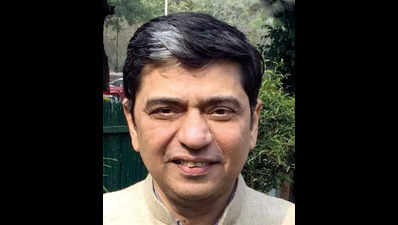- News
- The Passing Of A Titan
The Passing Of A Titan

Regardless of which political ideology one believes in or whether one is connected to the world of business or not, there is a shared recognition that we have lost someone who was a towering figure
What is it about Ratan Tata that evokes such a near-universal feeling? It is unusual for businesspeople, even highly successful ones like him, to generate a feeling that is close to veneration. It is more normal for them to elicit a reaction that is a mixture of awe and suspicion. As a society, we may have largely overcome our distaste for the world of business, but there is still, more often than not, a kernel of doubt about the legitimacy of their position. Business is seen to be a pursuit that hardens us, making us so pragmatic and goal-oriented that larger human concerns seem to become secondary. In Mr. Tata's case, it is interesting that most tributes lead with his human side while acknowledging his successful stewardship of one of India's largest business groups.
It is true that the Tata Group is the one private sector institution that has always stood apart from its peers. What is remarkable about it is that its core idea of business is that it is meant for public good. It is not a talking point, but a foundational belief that finds expression in many of its earliest actions. Today, it is fashionable for businesses to talk about having a larger purpose, but in most cases, this is a trendy idea that has been tacked on without any fundamental change in mindset. Not so in the case of the Tatas. The idea that business is meant for all stakeholders, including employees, communities that the business impacts directly and indirectly, suppliers and vendors, consumers, and even the nation, is embedded deep into its core business philosophy.
The idea that business, for all its need for pragmatism, can embrace an ethical core was embodied by him both by his actions and his persona. It is not that the Tatas were entirely above the realpolitik of business; it would have been impossible to operate in India without that, but it did not change the essential ethos of the group. The reason why he is held in such high regard by such a diverse group of people is that there was always a sense that he would not violate the trust that had been reposed in him and the brand that he led and represented.
As a business leader, he was responsible for helming the group through some of the most challenging periods in its history. A changing business environment, with the shedding of regulatory controls and the rise in competition, both local and international, meant that there was much opportunity for growth as there was a danger of complacency and decline. Many of India's older business groups fell by the wayside during this period, but he ensured that the individual businesses not only modernised but also stayed true to their core values.
He could be steely when he needed to. In fact, his biggest challenge came right at the outset when he took over reigns from the legendary JRD. The way he eased out the towering leaders who helmed the major Tata companies showed both skill and subtlety. This side of his business persona was in evidence much later too, when he fired his successor, Cyrus Mistry, in a move that was as sudden as it was uncharacteristic.
The other aspect of his personality that stood out and endeared him to people across the board was his unassuming manner and his muted, low-key lifestyle. He appeared untainted by wealth, or power, and carried himself without the paraphernalia that seems to accompany the successful and wealth. He lived simply, travelled without an entourage, and unlike other notable business luminaries, he hadn't the slightest desire to garner media attention either by his opinions or by displays of wealth.
Over the years, there have been occasions when there have been calls not just from the business community but even from members of the lay public for him to be considered for the position of President of the nation. And while this does not seem to be an option that was ever considered seriously by the political establishment, the fact that his name arose in this context is revealing. He was seen to be above the fray, someone who would not let his narrow self-interest guide his actions; he was regarded as a statesman, not just a business leader.
In the combination of business acumen, his embrace of humanity, and personal humility, he offers us a vision of business that stands starkly against its dominant face today. Today, when start-up founders, who represent the new culture of the business world, are obsessed with valuation numbers, and where wealth is not only displayed but thrust into our faces, Ratan Tata tells us that none of this is mandatory, that business can indeed have a noble side.
In some ways, our reaction to his passing redeems us. It shows that we still value the things that we were told were desirable virtues in another day and age. Much as we are prone to being dazzled by current modes of fame, celebrity, and wealth, deep down we reserve our real respect for those who go beyond. It is a cliché that his passing represents the end of an era, but this time around, one hopes that it is not true.
santosh365@gmail.com
End of Article
FOLLOW US ON SOCIAL MEDIA









